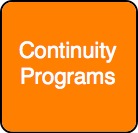How to Make Money Blogging. Free link directory exchange
In this page I want to share some information for beginners on how to make money blogging. For a very quick and broad visual intro – check out this Make Money Blogging MindMap which visualizes just SOME of the ways bloggers make money blogging.
First – let me start by sharing my own top Money Making Methods (updated regularly) but below that point you to some great resources and teaching on how to increase your income from blogging.
hat follows is a quick summary of my main income streams from blogging. Before you read it though – keep in mind that every blog is unique in how it can make money. Some of the following income streams will work on some blogs a lot better than others – the key is to experiment with as many as possible and see what works best for you.
The following income streams (from a number of blogs) have helped me to earn a six figure income each year for the last 5 years from blogging. I’ve ranked them from highest to lowest.
I hope you find it useful to see the mix and variety of ways that I earn a living from blogging.
1. AdSense
 Despite not using it here at ProBlogger any more (here’s why) I continue to use AdSense with amazing effect on my other blogs. I have them all set to show image and text based ads and find that 250×300 pixel ads work best (usually with a blended design). I don’t have much luck with their ‘referrals’ program but their normal ads work a treat and continue to be the biggest earner for me.
Despite not using it here at ProBlogger any more (here’s why) I continue to use AdSense with amazing effect on my other blogs. I have them all set to show image and text based ads and find that 250×300 pixel ads work best (usually with a blended design). I don’t have much luck with their ‘referrals’ program but their normal ads work a treat and continue to be the biggest earner for me.
2. Affiliate Programs
 I run a variety of affiliate programs on my blogs – most of which bring in smaller amounts of money that don’t really justify a category of their own (but which certainly add up).
I run a variety of affiliate programs on my blogs – most of which bring in smaller amounts of money that don’t really justify a category of their own (but which certainly add up).
These include recommending quality products like these here on ProBlogger: Thesis WordPress theme, Yaro’s Blog Mastermind Coaching Program and How to Launch the F*** out of your E-Book (and others) as well as some great products on my photography blog including 123 of Digital Imaging, David DuChemin’s amazing Photography E-Books and Mitchell Kanashkevich’s great ebooks.
The great thing about many of these programs is that they are of such high quality that they sell themselves and I am being emailed from readers who sign up to them thanking me for the recommendation!
3. E-Book Sales
 Last time I did a wrap up of how I make money blogging this category did not exist for me – I didn’t really have any of my own products to sell at all. However in the last year or so I’ve released 3 E-books – 31 Days to Build a Better Blog, The Essential Guide to Portrait Photography and Photo Nuts and Bolts: Know Your Camera and Take Better Photos. While these products all only sell for under $20 they certainly add up and some months this has been my biggest category of income. The reason they were only ranking at #3 in the last month was that I didn’t do a product launch (I wrote about one launch which brought in $72,000 in a week here). This is an income stream I see growing as I add more E-books to my range (expect 3 in the coming few months). Click Here!
Last time I did a wrap up of how I make money blogging this category did not exist for me – I didn’t really have any of my own products to sell at all. However in the last year or so I’ve released 3 E-books – 31 Days to Build a Better Blog, The Essential Guide to Portrait Photography and Photo Nuts and Bolts: Know Your Camera and Take Better Photos. While these products all only sell for under $20 they certainly add up and some months this has been my biggest category of income. The reason they were only ranking at #3 in the last month was that I didn’t do a product launch (I wrote about one launch which brought in $72,000 in a week here). This is an income stream I see growing as I add more E-books to my range (expect 3 in the coming few months). Click Here!
4. Continuity Programs
 This is another newer category for me but one that continues to grow.
This is another newer category for me but one that continues to grow.
A continuity program is a site where you earn a recurring income from people who subscribe to a service you offer.
For me this includes two sites – ProBlogger.com and Third Tribe Marketing. Both programs are membership sites and generate monthly income from the thousands of members that they have as a part of them.
5. Private Ad Sales/Sponsorships
 Private ad sales directly to advertisers have fallen for me in the last year (they previously ranked #3 on this list). This is partly due to a change in my own focus but also partly due to the economy as it is. I should note that this area does vary a little from month to month depending upon the campaigns we’re asked to run – we’ve had a couple of months where it actually ranked #2 in the last year.
Private ad sales directly to advertisers have fallen for me in the last year (they previously ranked #3 on this list). This is partly due to a change in my own focus but also partly due to the economy as it is. I should note that this area does vary a little from month to month depending upon the campaigns we’re asked to run – we’ve had a couple of months where it actually ranked #2 in the last year.
This includes ad sales of the 125 x 125 ads here at ProBlogger as well as a campaign or two at Digital Photography School. Click Here!
6. Chitika
 Chitka continues to be a great performer for me on my blogs. They traditionally have worked best on product related blogs although their Premium ad units now convert well on a larger range of blogs.
Chitka continues to be a great performer for me on my blogs. They traditionally have worked best on product related blogs although their Premium ad units now convert well on a larger range of blogs.
While I’ve focused a little less on Chitika in the last 6 months (mainly as I’ve released my own products and moved a little away from advertising) they do continue to perform well where I use them and over the time I’ve been using Chitika they’ve now earned me over a quarter of a million dollars – as a result I can’t recommend them enough!
7. Amazon Associates

Amazon’s affiliate program has been one of my big movers in the last 12 months. I used to make a few odd dollars from it – however in recent times it has become a significant earner for me (in fact it’s now earned me over $100,000 since I started using it). Christmas time (and the lead up to it) is a particularly good time for Amazon – last December it would have ranked #2 on this list.
8. ProBlogger Job Boards
 The job boards here at ProBlogger continue to grow each month in the number of advertisements that are being bought. This enabled me to invest most of the money that they’d earned a while back into getting a new back end for the boards and to redesign them. These job boards now bring in over $1000 a month in revenue which is pretty nice considering that they are so low maintenance to run. They also offer a service to readers and add value to the overall blog.
The job boards here at ProBlogger continue to grow each month in the number of advertisements that are being bought. This enabled me to invest most of the money that they’d earned a while back into getting a new back end for the boards and to redesign them. These job boards now bring in over $1000 a month in revenue which is pretty nice considering that they are so low maintenance to run. They also offer a service to readers and add value to the overall blog.
The only problem that I face with the job boards is that there are so many bloggers looking for work that the demand for jobs far exceeds the supply. On the good side of things is that advertisers are reporting getting amazing quality of applications.
9. Speaking Fees
I get asked to do a lot of speaking and increasingly they are paid opportunities. I’m not able to do as many as I would like (mainly because I live in Australia and most of what I’m asked to do is overseas and I only travel 2-3 times a year) – however in April I did a couple of events and the income was enough to include in this list. Click Here!
Other Income
In addition to all of the above there are many smaller incomes. Many of these are from smaller advertising programs that I test but none are big enough to really rate a mention here.
The other income stream that there was no actual money from in April was book royalties from the ProBlogger Book. These are only paid every 6 or so months (not in April). It’s probably also worth mentioning that authors don’t tend to make a whole lot of money on book royalties – you don’t write books to get rich (unless you sell a lot of them).
Useful Resources for Bloggers Wanting to Make Money Blogging
A lot has been written on the topic of making money online from blogs. There is a lot of wonderful information out there – but also a lot of hype and sometimes dangerous information.
Below are a number of articles that I’ve written exploring some of the different ways that bloggers make money.
Click Here!Caraibesfm, Radio Caraibes Fm Live
Haiti news